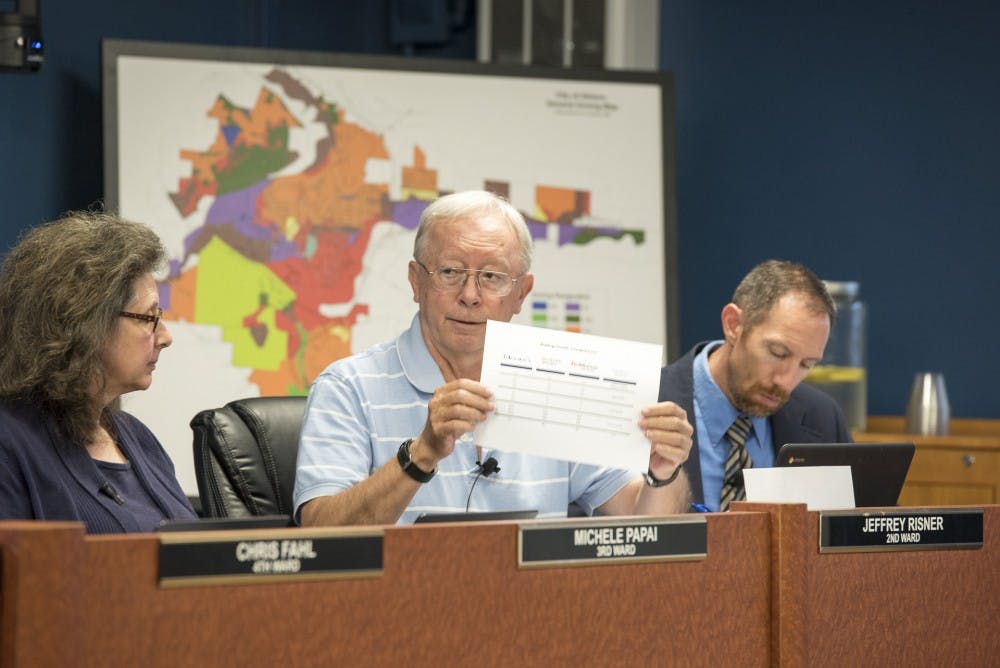Athens City Council members voted Monday night to move forward with an ordinance that would allow more money for bike lanes and sidewalks on East State Street, calling it "progressive" and "inclusive."
The unanimous vote comes after much contention regarding the ordinance. Councilwoman Michele Papai, D-3rd Ward, said she received letters and communications about safety concerns regarding the ordinance.
Papai said she met with several far east side residents last week regarding the improvements to East State Street who asked her to delay the ordinance.
“Last week they asked that I move to table to ordinance,” Papai said. “After review, I’ve decided to move forward with this ordinance.”
The proposed improvements, which were originally approved in 2016, would make East State Street a “complete street,” allowing for pedestrian, bicycle and automotive use. The improvements would narrow lanes and create bike lanes and sidewalks and would take until 2018 to fully complete.
Councilman Patrick McGee, I-At Large, expressed concern about the smaller lanes.
“I have such terrible trepidation because of the width of those lanes,” McGee said. “I know that some (drivers) are going to be on their cell phones and not paying attention.”
Athens Mayor Steve Patterson noted that the plans had been reviewed by both city engineers Andy Stone and Jessica Adine and by the Ohio Department of Transportation.
“Safety concerns have been covered,” Patterson said. “The tenet of any city is health, safety and welfare, and this particular project covers all of those.”
Patterson said it was important to be inclusive to all citizens, and encouraged council to move forward with the ordinance, which would add $142,650 from an ODOT grant to the East State Street project funds.
Councilwoman Chris Fahl, D-4th Ward, said city engineers found that speed was the main problem on East State Street and narrowing the lanes, or “road dieting” could fix that.
“Road dieting helps to reduce the speed of cars,” Fahl said.
Councilman Peter Kotses, D-At Large, said the project had been well designed and described the current system as "failing."
“City engineers aren’t designing this project on the back of a paper napkin,” Kotses said. “These designs aren’t revolutionary. They’re attested and they work.”
Council members also passed several other ordinances Monday night, including a measure reducing the time needed to obtain a parade permit from three weeks to seven days, and reducing the penalty for not taking out a permit from a misdemeanor to an administrative fine.
The ordinance was introduced after 70 demonstrators were arrested on criminal trespassing charges in Baker University Center on Feb. 1. Council members said the change would facilitate protests in the future and limit arrests.





